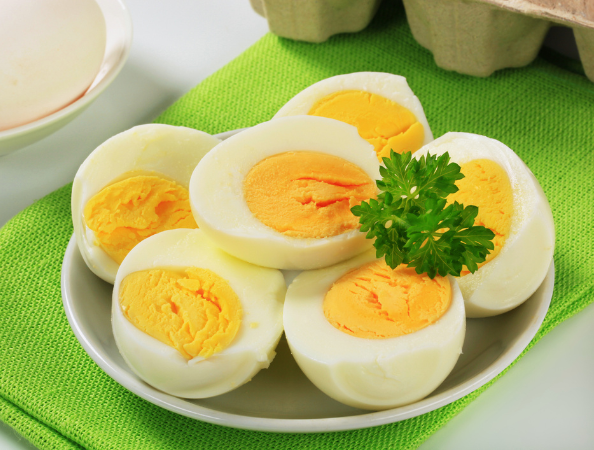This is how egg consumption can affect your kidneys, according to experts

For a long time, eggs had a bad reputation due to their cholesterol content , which previous studies had strongly linked to heart disease. However, more recent research has shown that the relationship between dietary cholesterol and blood cholesterol is weak. Furthermore, studies have shown that eggs can be a healthy part of your diet.
This food is a great source of high-quality protein
and contain all 9 essential amino acids. Eggs also contain many vitamins and minerals, including vitamins A, D, E, K, folate, selenium, and B vitamins, as well as choline, a type of fat that is key to proper cell function.
But despite all these benefits, eggs are a good source of animal protein and phosphorus, which may need to be limited for people with chronic kidney disease (CKD). Therefore, the recommendation for these patients is to consult with their renal dietitian about how many eggs they can safely eat.
The National Kidney Foundation recommends that many CKD patients avoid or significantly reduce their consumption of egg yolks, especially if their blood phosphorus levels are high . It's preferable to limit their intake to egg whites, which provide protein without the associated mineral overload.
Eggs and kidney disease Here are some of the National Kidney Foundation's recommendations on egg consumption for patients with kidney disease:

Eggs are a good source of animal protein and phosphorus. Photo: iStock
Eggs are a good source of animal protein and phosphorus, which may need to be limited in CKD patients. Patients should ask their renal dietitian how many eggs are safe to eat.
Eggs are low in sodium and potassium, which can be helpful.
If you eat raw eggs or eggs with runny yolks, you run the risk of foodborne illness. Therefore, it is recommended to eat only eggs with cooked yolks, especially if you have had a transplant.
- Hemodialysis (3 times a week)
Your body needs extra protein if you're on dialysis. Eggs can be a great source of high-quality protein. But they do contain some phosphorus. You should ask your renal nutritionist how to safely include eggs in your diet.
- Daily home hemodialysis and nocturnal peritoneal dialysis
You need even more protein if you're on daily dialysis. Eggs can be a great source of high-quality protein. However, they do contain some phosphorus. You should consult your renal nutritionist about how many eggs are safe to eat.
Eating eggs will not have any effect on the formation of kidney stones.
Ultimately, egg consumption can be both a nutritional boon and a potential risk, depending on the stage of kidney health, the preparation method, and dietary guidelines. The key is balance, moderation, and professional supervision.
eltiempo





